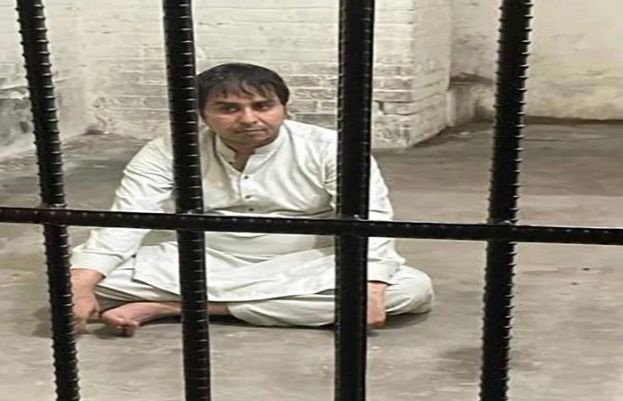
Addressing a press conference alongside Special Assistant to Prime Minister Dr Faisal Sultan, the education minister said that the National Command and Operation Centre worked hard and it consulted with think tanks, specialists, and kept reviewing the situation in the region.
Earlier, the education ministers decided that the schools across Pakistan would be reopened in phases starting September 15 and strict monitoring would be done to curb the COVID-19 pandemic.
Read more: Schools reopening in Pakistan: What can we learn from other countries?
Mahmood had chaired a meeting of all the provincial education ministers to make a final decision regarding reopening of educational institutes across the country.
The ministers, according to sources, proposed that the schools would open in phases with classes from Grade 9 and up, as well as all universities, would reopen from Sept 15, while Grade 6-8 classes would resume by Sept 22. However, pre-primary and primary classes would reopen on Sept 30.
The Higher Education Commission's (HEC) chairperson and executive director, Special Assistant to the Prime Minister on Health Dr Faisal Sultan, and officials of the health department were also present at the Inter-Provincial Education Ministers Conference (IPEMC), which aimed to compile the final recommendations regarding the opening of educational institutes.
The meeting was set to also focus on finalising the standard operating procedures (SOPs) in this regard. Educational institutes across Pakistan had been shut down back on March 13 in a bid to curb the spread of the deadly coronavirus.
The Single National Curriculum (SNC), a short curriculum for the current academic year, examinations in 2021, and establishment of anti-harassment bodies in the provinces were also on the meeting's agenda.
A discussion on the transition plans related to the Basic Education Community Schools (BECS) and National Commission for Human Development (NCHD) was also planned for the IPEMC.
Masks mandatory
In this regard, Sindh Education Minister Saeed Ghani said all educational institutes were to open between September 15 and 30.
All classes starting Grade 9 and up, as well as all universities, would reopen from Sept 15, while Grade 6-8 classes would resume by Sept 22, Ghani said, adding, however, that pre-primary and primary classes would reopen on Sept 30.
Read more: Pakistani parents more at ease sending kids to school now than in June: poll
The provincial minister warned that the schools in any area that may witness a rise in the number of coronavirus cases would be closed.
Wearing face masks would be mandatory in the schools and strict action was to be taken in case of violation of the coronavirus-related SOPs, he added.
Punjab to allow 50% students in one day
Moreover, Punjab Education Minister Dr Murad Raas said there would be "no double shift".
"Alternative day schedule to be followed by all public & private schools," Raas said on Twitter.
KP to conduct COVID-19 tests of students, staff
Separately, in Khyber Pakhtunkhwa, the provincial education department has decided to conduct coronavirus tests on school staff and students.
"Health Department's teams will be visiting public and private educational institutions to conduct random tests of teachers / staff / students / canteen vendors and all those persons who are working within the premises of educational institutions in an effort to detect COVID-19 positive cases and prevent the spread of disease," a notification shared on the Twitter account of the ruling PTI's KP chapter stated.
'Top-down, rotational' basis
On August 27, the NCOC had suggested that all educational institutes in the country be reopened with a top-to-bottom approach — that is, universities first, then colleges, high schools, and so on) — and on a rotational basis.
The meeting was attended by representatives of various educational institutes — including public and private sector institutes, as well as madrassas — to reach a consensus on the opening of various institutes from university to school levels.
According to a statement released by the NCOC after the meeting, it was suggested that the timings of various institutes be reduced by suspending various activities, which involve mass gatherings, including co-curricular activities.
All participants were briefed on the current coronavirus situation prevailing globally, regionally, and in the country. They were also informed about the risks and challenges involved in the opening of educational institutes as it involved children of all ages.
The educational sector representatives were informed that the NCOC's suggestions had been finalised after hectic and lengthy consultations with international experts, academia, and think tanks, particularly those who had been working on the reopening of the educational sector.
Prime Minister Imran Khan’s aide on health, Dr Sultan, told participants that while the eventual opening would be undertaken after a consultative process, the NCOC and the health ministry would closely monitor disease statistics on a daily basis.
The likely impact of tourism and Muharram on the opening of educational institutes would also be assessed, he added, noting that an IT-based monitoring mechanism was being developed to ensure health guidelines and COVID-19 containment measures in this regard.
from Latest Pakistan News - SUCH TV https://ift.tt/2R0j5mv



